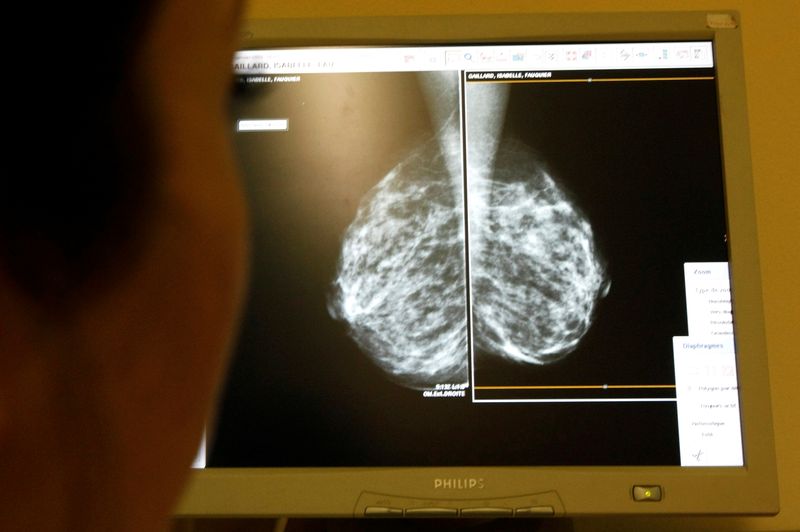(Reuters) - Racial disparities in breast cancer survival in the United States could be cut by more than half if Black women got mammograms every other year starting at age 40, according to findings from a model of simulated health outcomes published on Monday.
Compared with white women in the United States, Black women are younger at breast cancer diagnosis, are diagnosed more often with hard-to-treat or advanced-stage cancers, and are more likely to die from breast cancer, the study authors note.
The government-backed U.S. Preventive Services Task Force (USPSTF) - whose guidelines are widely followed by doctors, insurance companies and policymakers - calls for regular mammograms for all women every two years starting at age 50. The task force said women in their 40s should discuss with their doctors any need for earlier screening.
For the new study, published in Annals of Internal Medicine, researchers used a computer model to estimate the lifetime impact of digital mammography screening under different starting ages and screening intervals for women born in the United States in 1980.
The model compared the benefits of screening to potential harms, such as false-positive results that would lead to unnecessary further testing. It used data about breast density, breast cancer molecular subtypes, age and stage at which treatment is initiated, as well as non-breast cancer mortality, to evaluate screening strategies.
As a proxy for racism - which partially accounts for the disparities, the authors note - the model also considered factors such as access to medication, delays in treatment, dose reductions, and discontinuation of treatment.
The model estimates that biennial mammograms for Black women starting at age 40 would reduce the gap in breast cancer mortality when compared with white women by 57%. The added risk of false positives from earlier screenings is balanced by the benefits of earlier breast cancer detection in this group, the study found.
More specifically, if all women started getting mammograms at age 50, there would 14.3 breast cancer deaths per 1,000 white women, compared to 17.6 breast cancer deaths per 1,000 Black women, the researchers estimate. If screening of Black women started at age 40, the number of breast cancer deaths per 1,000 in that group would drop to 15.7, according to the study.
Mammography screening guidelines differ. The American Cancer Society says women at average risk should begin annual mammography screening at age 45, although they "should have the opportunity" to start at age 40. The American College of Obstetricians and Gynecologists recommends women be offered mammography at 40, and begin screening no later than age 50.
"Black women are especially encouraged to talk with their clinician about when it makes the most sense for them to begin getting screened," Dr. Carol Mangione, vice-chair of the USPSTF, said in an emailed comment. She said there has not been enough data to make specific recommendations for different racial and ethnic populations.
The author of an accompanying editorial in the medical journal said that while racism in medicine cannot be ignored, categorizing patients as Black or non-Black may overlook differences in genetic ancestry and sociodemographics.
"Health inequities are ubiquitous in medicine. We must study race and racism if we are to eradicate inequity," Dr. David Jones, a professor of medical ethics at Harvard University, said in the editorial.
